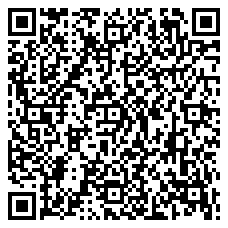Introduction
In today's dynamic petroleum industry, Asset Integrity Management (AIM) is a cornerstone for ensuring the safe, efficient, and reliable operation of critical assets. This 10-day comprehensive asset integrity management course equips professionals with cutting-edge knowledge and skills to develop and sustain AIM programs throughout an asset's lifecycle—from design and construction to operation and decommissioning.
This course focuses on providing participants with advanced training in asset integrity management services and solutions, enabling them to optimize performance, mitigate risks, and ensure compliance with global regulations. Whether you're an experienced professional or new to the field, this course is a step towards excelling in asset management positions within the petroleum industry.
Course Objectives
By the end of this course, participants will:
- Understand what asset management means and its critical role in the petroleum industry.
- Grasp the definition of asset integrity management and its strategic significance.
- Develop and implement comprehensive AIM programs tailored to organizational needs.
- Utilize modern technologies like AI, IoT, and digital twins to enhance AIM efficiency.
- Conduct risk assessments and apply methodologies like FMEA and RCA for failure analysis.
- Master best practices in maintenance, inspection, and repair to ensure asset longevity.
- Ensure regulatory compliance by adhering to global asset management standards.
- Foster a culture of safety, reliability, and continuous improvement.
Course Outlines
Day 1: Introduction to Asset Integrity Management
- What is Asset Management? Understanding its meaning and importance in the petroleum industry.
- Defining asset integrity management and its lifecycle approach.
- Current trends, challenges, and solutions in global asset management.
Day 2: Developing AIM Programs
- Components of an effective AIM program.
- Setting goals and objectives aligned with principal asset management strategies.
- Crafting AIM policies and procedures for unique organizational needs.
- Leadership's role in fostering a culture of integrity.
Day 3: Advanced Tools and Technologies
- Exploration of advanced AIM technologies like IoT and digital twins.
- Implementing AI and predictive maintenance for enhanced performance.
- Utilizing data management tools to monitor asset conditions.
Day 4: Risk Assessment and Failure Analysis
- Risk assessment techniques for petroleum asset management.
- Applying Failure Mode and Effects Analysis (FMEA) for asset evaluation.
- Conducting Root Cause Analysis (RCA) for addressing recurring issues.
Day 5: Maintenance, Inspection, and Repair
- Best practices in maintenance management to safeguard asset reliability.
- Advanced inspection techniques for detecting potential failures.
- Strategies for planning and executing efficient repair operations.
Day 6: Regulatory Compliance
- Overview of global standards like ISO and their relevance in asset integrity management.
- Ensuring adherence to industry-specific regulations.
- Conducting audits and maintaining compliance documentation.
Day 7: Performance Optimization
- Techniques for optimizing petroleum asset performance.
- Strategies for extending asset life through proactive measures.
- Analyzing case studies on global asset management success stories.
Day 8: Integrating AIM with Other Systems
- Integrating AIM with HSE (Health, Safety, and Environment) systems.
- Linking AIM with ISO 55000 standards for quality assurance.
- Benefits of adopting integrated management solutions.
Day 9: Change Management and Continuous Improvement
- The importance of change management in AIM.
- Strategies for continuous improvement in integrity asset management.
- Measuring AIM performance and incorporating feedback mechanisms.
Day 10: Building a Culture of Safety and Reliability
- Creating a workplace culture centered on safety and reliability.
- Training and competency development for sustainable AIM practices.
- Engaging stakeholders to align organizational goals with AIM objectives.
Why Attend This Course? Wins & Losses!
- Gain expertise in what is asset integrity management and its practical applications.
- Learn how to optimize asset performance using advanced technologies like IoT and AI.
- Master global asset management standards to ensure compliance and efficiency.
- Enhance your qualifications for asset management positions in the petroleum industry.
- Develop strategies to tackle challenges and turn risks into opportunities.
Conclusion
This Asset Integrity Management (AIM) course is a vital training program for professionals looking to excel in the petroleum industry's demanding environment. By mastering asset management principles, risk mitigation techniques, and modern technologies, participants will emerge as leaders in global asset management solutions.
Whether you're pursuing advanced knowledge in petroleum asset management or aiming to secure a competitive edge in asset management positions, this course provides the tools and strategies needed for success. Don't miss this opportunity to transform your career and become a trusted expert in asset integrity management services.
Enroll now and take the first step toward excellence in asset management!


